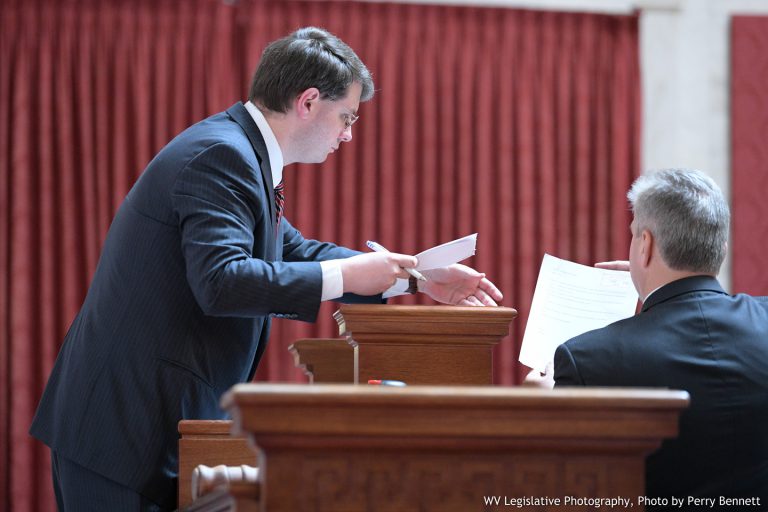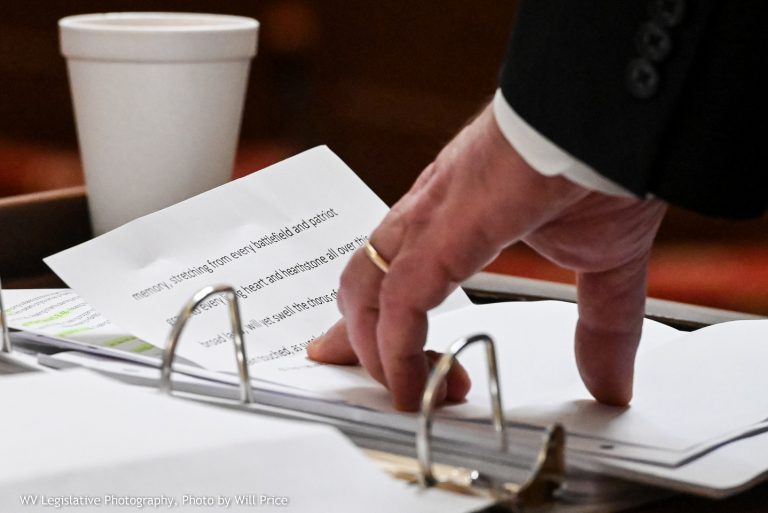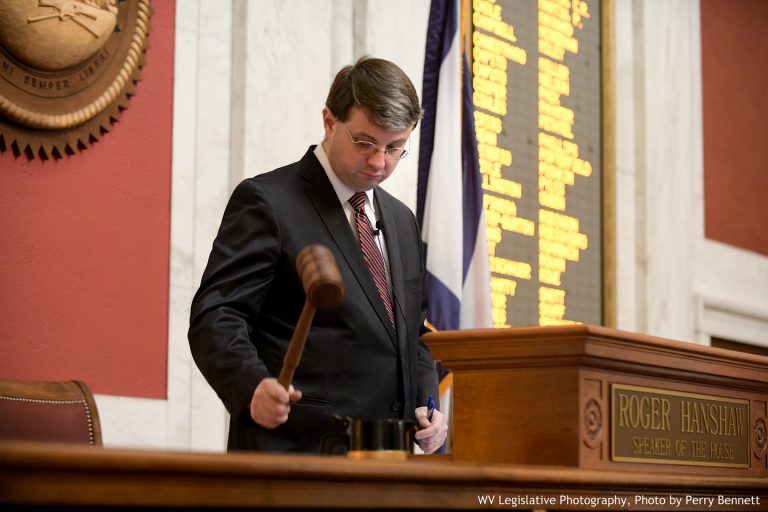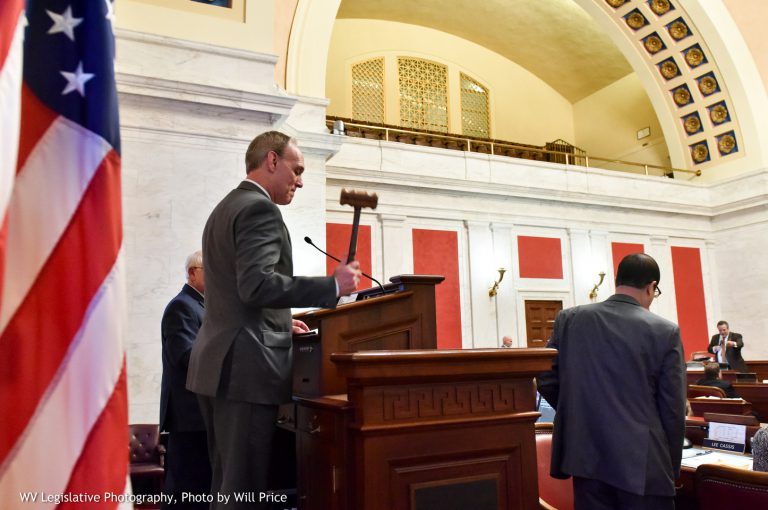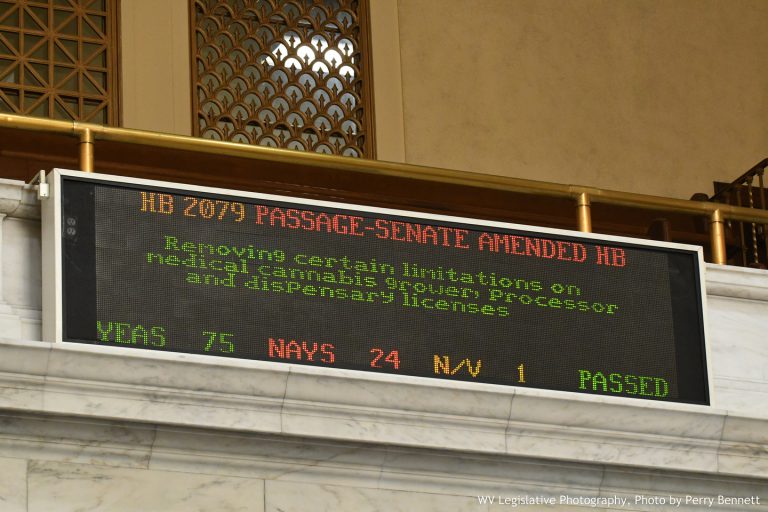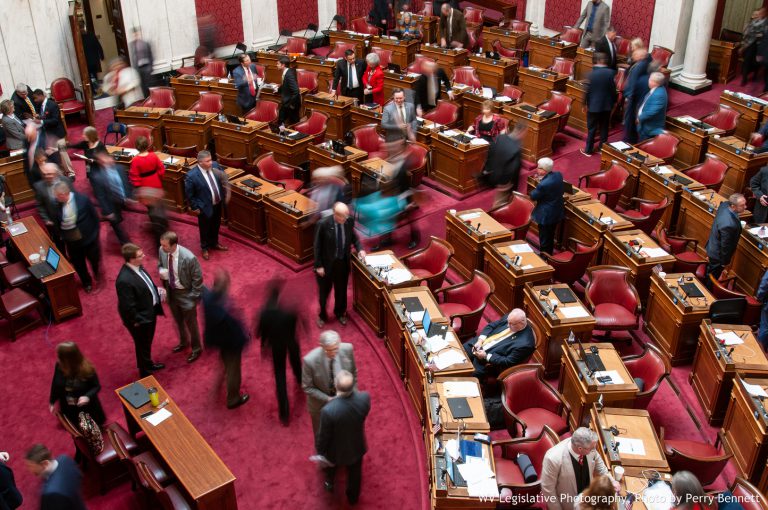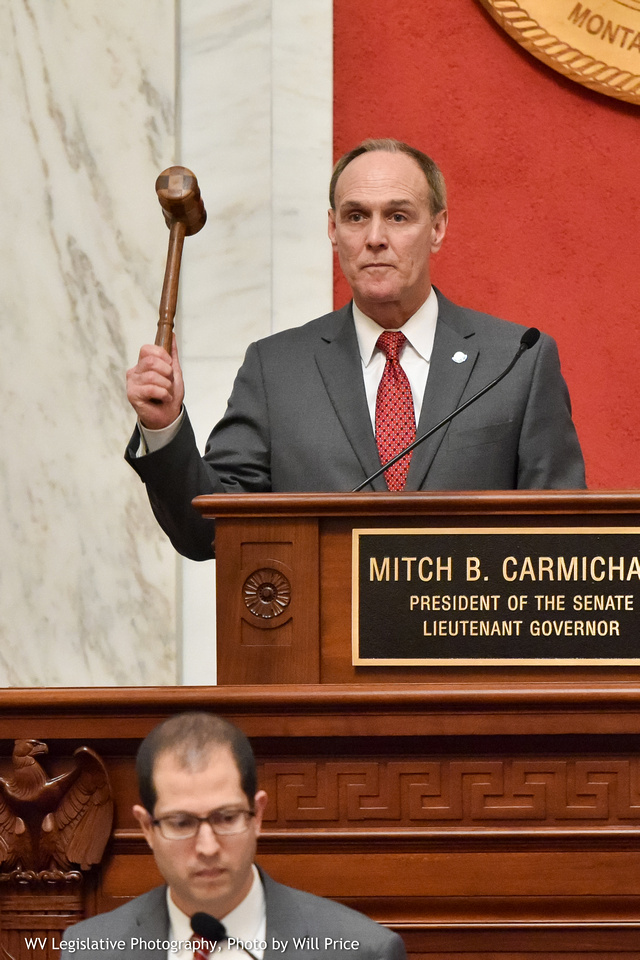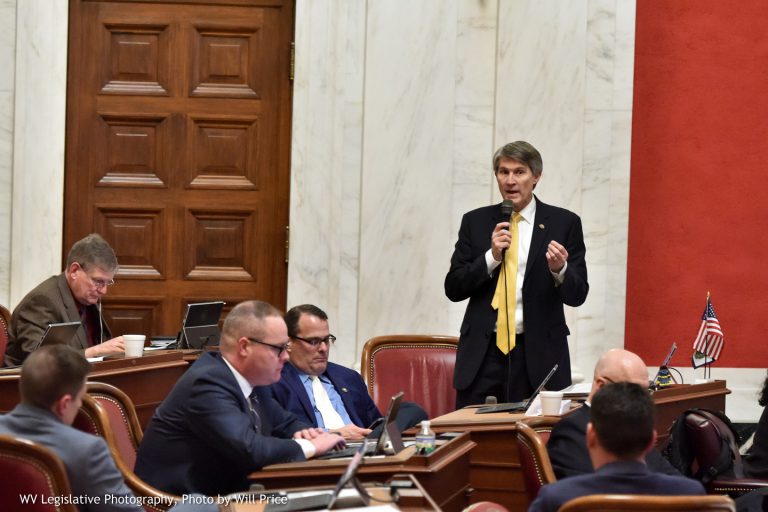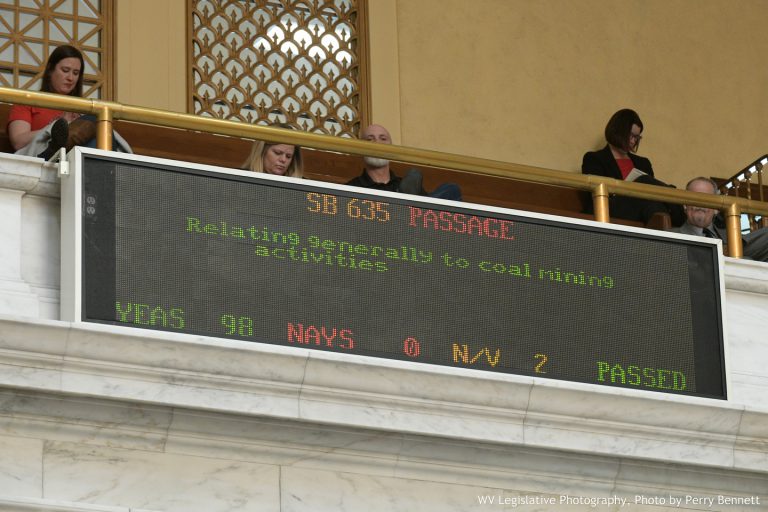The House of Delegates continued to meet at 7:00 p.m. on Saturday, March 7 on the final day of session to continue taking up messages from the Senate and conference committee reports.
The House of Delegates established two conference committees to address disagreements between the two chambers and take up come to a compromise.
The House refused to recede on their changes to Senate Bill 522, a bill to create the Special Road Repair fund. A conference committee consisting of Delegate Vernon Criss, R-Wood, Delegate Daniel Linville, R-Cabell, and Jason Barrett, D-Berkeley was appointed to reach an agreement on the bill.
A conference committee was also appointed to come to a compromise on Senate Bill 405, a bill to increase the limit on additional expenses incurred in preparing a notice list for redemption. Delegate Jeff Pack, R-Raleigh, Delegate Tom Bibby, R-Berkeley, and Delegate Tim Tomblin, D-Logan were appointed to this conference committee, due to congregate at 7:30 p.m. in the Senate President’s Conference Room.
Conference committee reports for Senate Bill 317 and Senate Bill 596 were made available during this meeting. They will be taken up for consideration later tonight.
The Senate accepted the conference committee report for Senate Bill 295, relating to crimes against public justice.
Delegate Ray Hollen, R-Wirt, presented the report, which issued a compromise on a bill that would include court security officers in the definition of people who could be criminally prosecuted for obstructing a police officer, adding protection for court security personnel and bailiffs as it relates to the potential to charge individuals for obstruction of such officers. The compromise adds correctional officers to the list of security personnel, and makes several other changes.
The House adopted the conference committee report and Senate Bill 295 completed legislative action.
The House concurred with technical Senate amendments made to House Bill 2665, House Bill 2770, House Bill 2933, and House Bill 2807. All of these bills completed legislative action.
House Bill 2479, House Bill 2490, House Bill 2856, House Bill 2945 were all passed by the Senate on this day without amendment and completed legislative action as well.
The House of Delegates had consideration of changes that the Senate made to House Bill 2673. The changes consisted of allowing the state tax department to maintain administration of the plugging of orphaned gas and oil wells. The amendment didn’t operate in a way that changed the substance of the bill, so the House unanimously concurred.
The House of Delegates also adopted the Senate’s amendment to House Bill 2674, which seeks to expand the services issued by House Bill 2674 by combining provisions from House Bill 2882.
Changes made to House Bill 2947, a bill to expand telemedicine services in rural hospitals, was also concurred to by the House of Delegates. This bill would make a change to prohibit the use of telemedicine equipment in state emergency rooms.
The changes made to House Bill 2968 were also concurred to. This bill would add provisions to allow remote service units to bank communication terminals. The change that the Senate made would specify that a bank placing a remote service unit in the state would not have to have a physical presence in the state.
Changes made to House Bill 3131 consisted of removing the purview of the Secretary of the Department of Health and Human Resources to raise employees’ salaries. The amendment instead creates a merit system in which state hospital employees can receive raises. The amendment was concurred to by the House with little discussion.
Senate Bill 424 was read all three times after a suspension of Constitutional rules. This bill would issue a $10 million supplemental appropriation to the Governor’s Civil Contingency Fund. The bill was passed earlier by the Senate, and completed legislative action upon being passed out of the House without amendment.
The House is in recess until 9:00 pm. tonight, Saturday, March 9.


